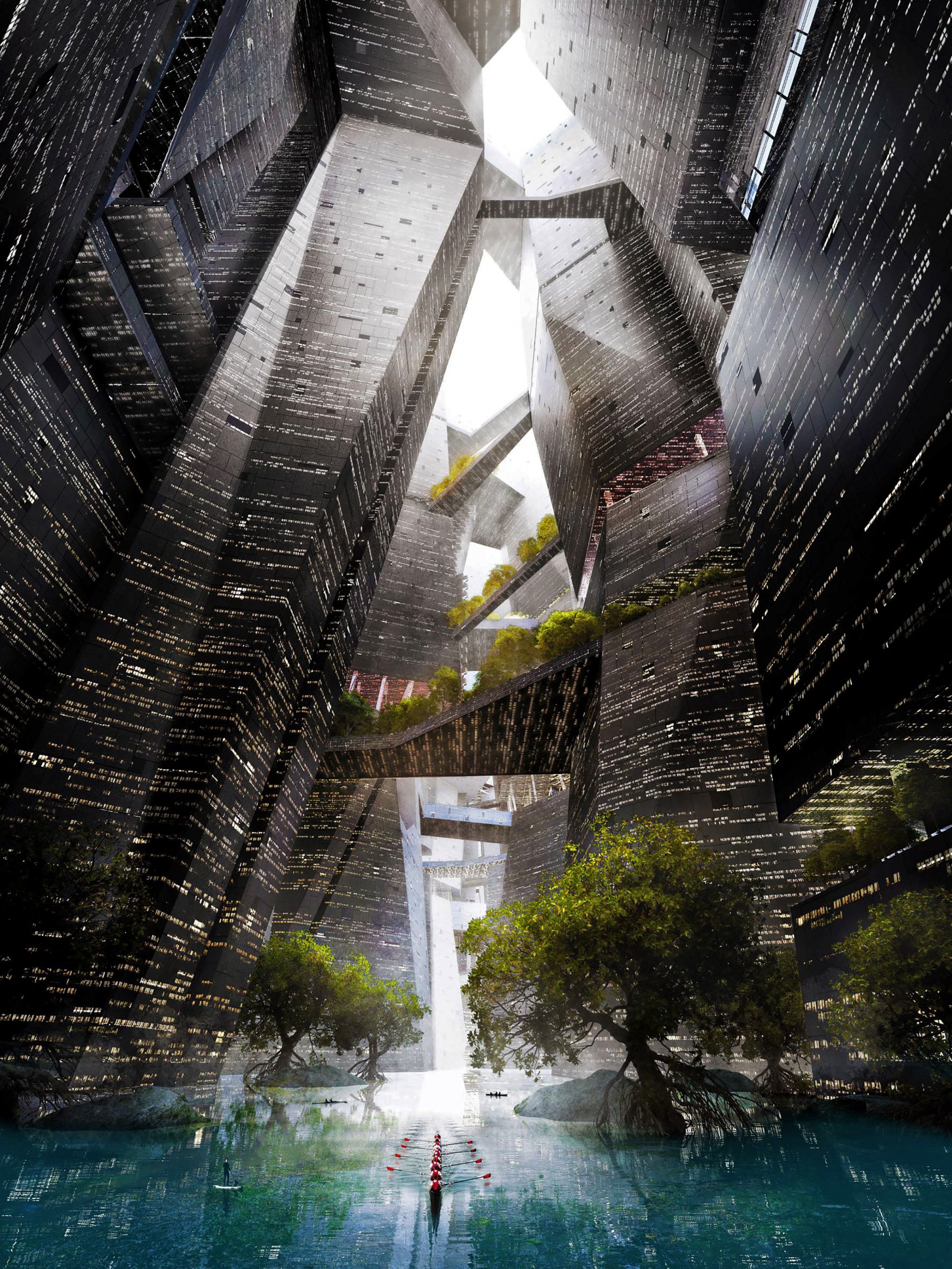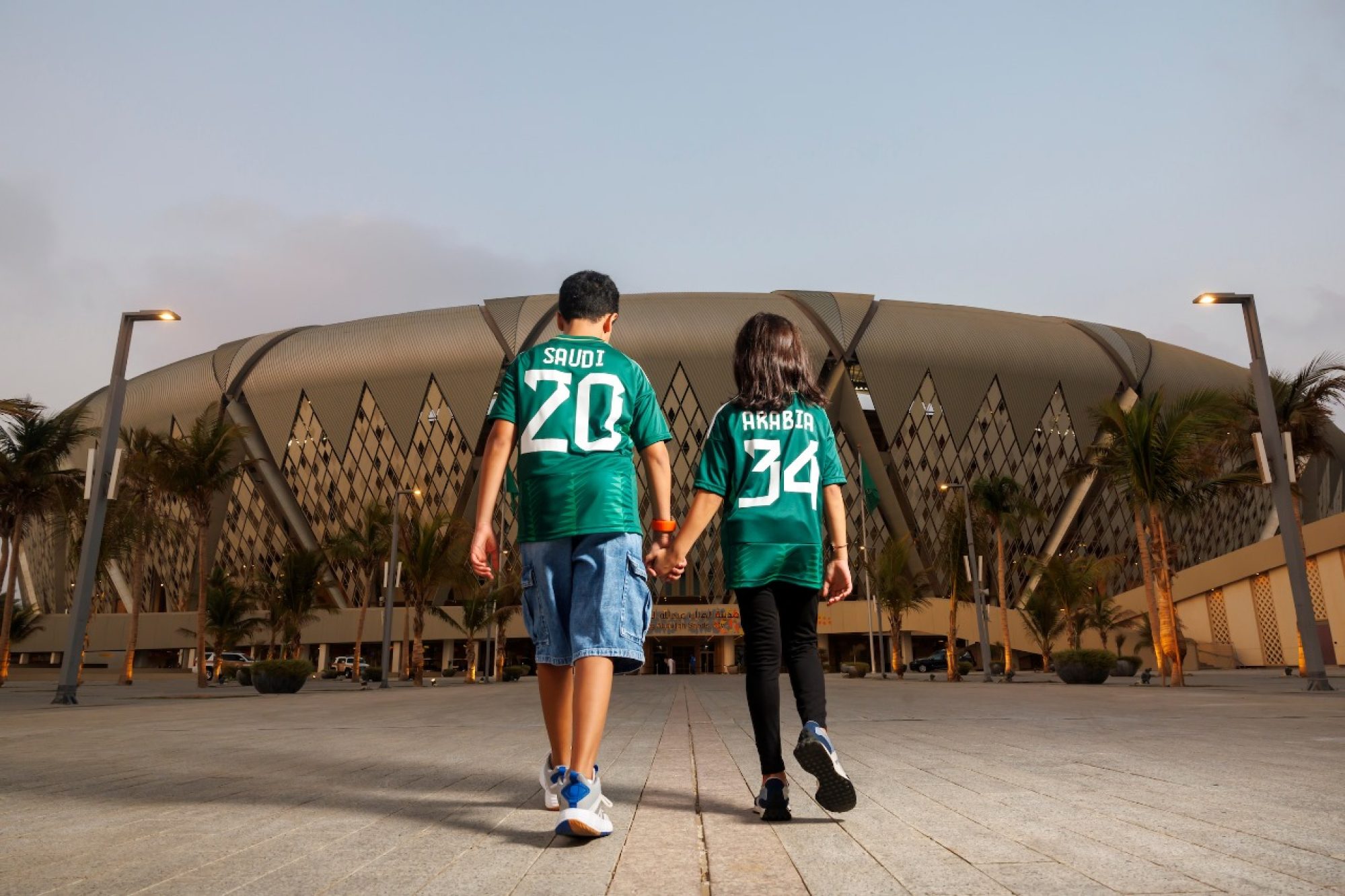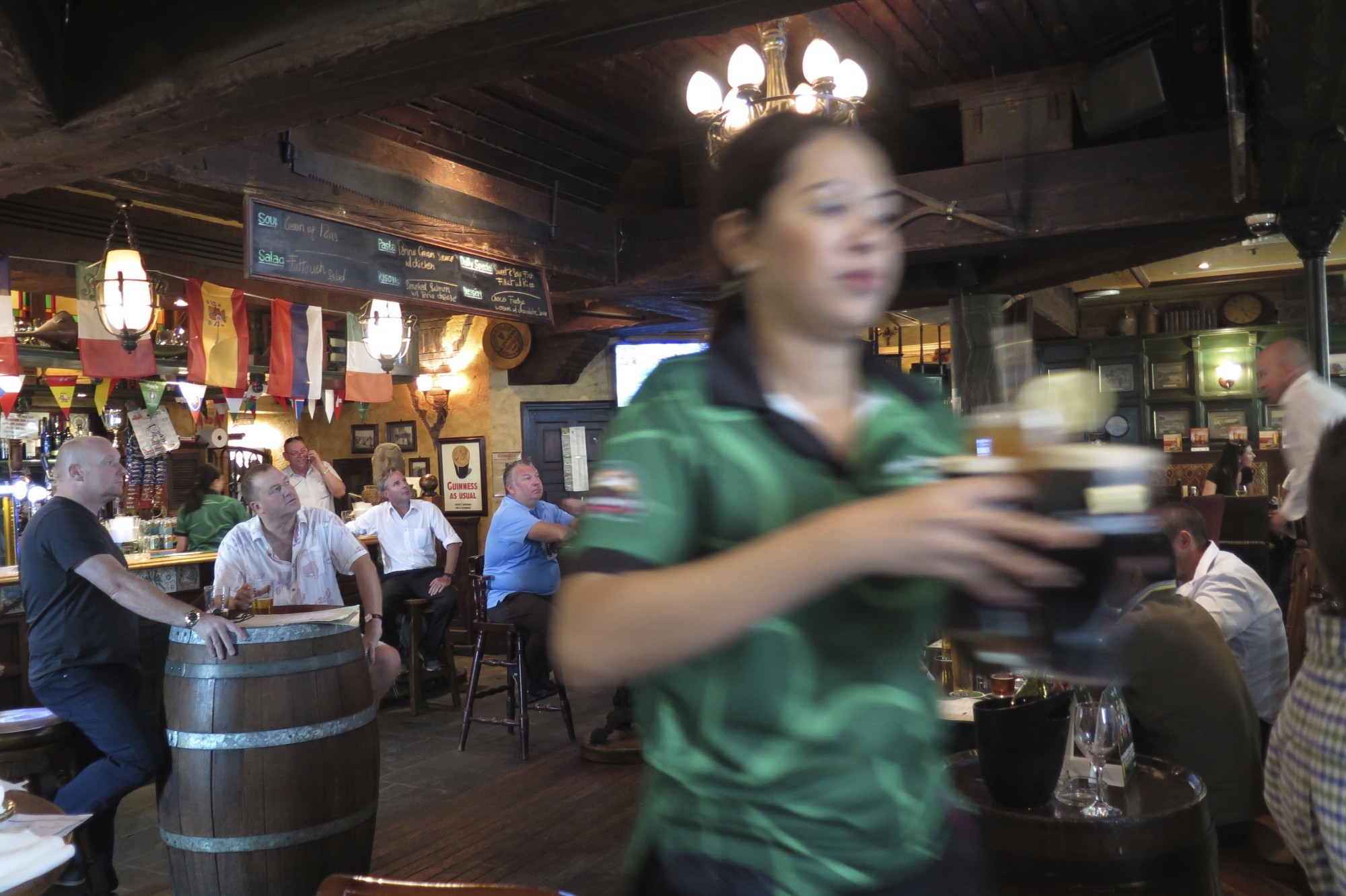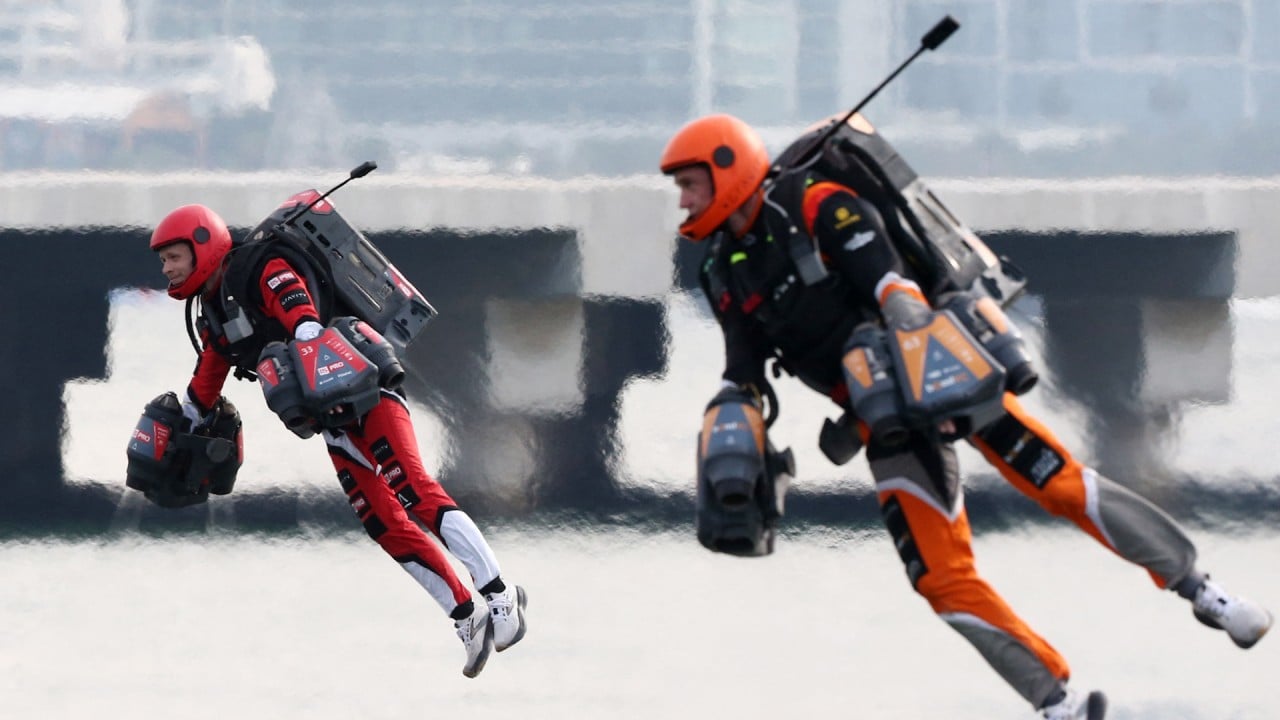Saudi political commentator Salman Al-Ansari said the introduction of entertainment venues such as Red Sea Global and the Qiddiya project near Riyadh “could also incorporate more liberal amenities to cater to international visitors while balancing religious sensitivities.”
 Models wear beachwear from the Moroccan designer’s collection during a fashion show at the St. Regis Red Sea Resort in May. Photo: AFP
Models wear beachwear from the Moroccan designer’s collection during a fashion show at the St. Regis Red Sea Resort in May. Photo: AFP
“These changes will be carefully managed to ensure they are consistent with Saudi Arabia’s societal values,” he told This Week in Asia.
Once a closed society that only allowed foreign Muslim pilgrims to enter the country to visit Mecca and Medina, Saudi Arabia began issuing tourist visas in 2019 and now citizens of 63 countries are eligible for 90-day visits.
Domestic tourism has boomed since the Kingdom began investing heavily in the sector under its Vision 2030 plan launched in 2016.
According to a report released in March by the Ministry of Economic Planning, the value of arts and entertainment activities more than doubled between 2020 and 2022, while the cost of food and accommodation increased by 77%.
This growth has been driven in part by an influx of foreign companies and experts to Riyadh and the Red Sea port city of Jeddah, attracted by vast business opportunities created by megaprojects worth an estimated $870 billion due for completion by 2030.
 A computer-generated image shows “The Line” at the heart of Neom, a planned futuristic Red Sea megacity. Photo: Neom/Distributed via AFP. The most visible of the proposed developments is the futuristic city of Neom, planned by Saudi Arabia on the shores of the Gulf of Aqaba, which it shares with Egypt, Israel and Jordan.
A computer-generated image shows “The Line” at the heart of Neom, a planned futuristic Red Sea megacity. Photo: Neom/Distributed via AFP. The most visible of the proposed developments is the futuristic city of Neom, planned by Saudi Arabia on the shores of the Gulf of Aqaba, which it shares with Egypt, Israel and Jordan.
After Saudi Arabia achieved its target of 100 million tourists last year with the resumption of regular and full-scale pilgrimages to Mecca and Medina after the COVID-19 pandemic, the government has set a new goal of 150 million tourists by 2030.
According to the Ministry of Economic Planning, spending by tourists in Japan surged 319% between 2020 and 2022.
As of last year, the tourism sector accounted for 6 percent of the Saudi Arabian economy and the government wants to increase that to 10 percent by 2030.
 Saudi Arabia is the only bidder to host the 2034 FIFA World Cup. Photo: Handout
Saudi Arabia is the only bidder to host the 2034 FIFA World Cup. Photo: Handout
Global real estate consultancy Knight Frank forecasts that Saudi Arabia will build 320,000 new hotel rooms by 2030, of which two-thirds are expected to be four- and five-star rated.
“This suggests that between 232,000 and 387,000 key tourism workers could require accommodation as the hospitality industry booms,” Knight Frank said in an April report.
To achieve these ambitious tourism goals, Saudi Arabia and five of its Gulf Cooperation Council partners approved plans in May to implement a joint tourist visa system, similar to Europe’s Schengen visa, by the end of this year. Saudi Arabia was granted approved travel destination status by China last year, accelerating its plans to attract 3 million Chinese tourists by 2030. A waitress serves beer to customers at a restaurant in Dubai, United Arab Emirates. Photograph: The Associated Press Saudi Arabia has made “great strides towards liberalizing its society,” but Al Ansari said it is unlikely to “fully copy” the approach of neighboring United Arab Emirates, which decriminalized alcohol consumption in 2020. The UAE, a world leader in luxury tourism, is set to open the Gulf’s first casino resort in 2027.
A waitress serves beer to customers at a restaurant in Dubai, United Arab Emirates. Photograph: The Associated Press Saudi Arabia has made “great strides towards liberalizing its society,” but Al Ansari said it is unlikely to “fully copy” the approach of neighboring United Arab Emirates, which decriminalized alcohol consumption in 2020. The UAE, a world leader in luxury tourism, is set to open the Gulf’s first casino resort in 2027.
Al-Ansari said Saudi Arabia was not expected to take similar steps in the near future due to its “deeply rooted religious and cultural background.”
But the regulatory framework for the Neom City project suggests there is room for “liberal policies” aimed at attracting international tourists and businesses, and there are signs of gradual easing in certain areas, he said.

01:58
Dubai holds world’s first jet suit race for ‘Iron Man’ pilots
Dubai holds world’s first jet suit race for ‘Iron Man’ pilots
A report published in February by the Economist Intelligence Unit drew a similar conclusion, saying the opening of Riyadh’s first liquor store was a “very small step” towards making alcoholic beverages available to non-Muslim tourists and expats.
The report said it expects a “further relaxation” of Saudi social norms as the kingdom pursues its Vision 2030 goals, which could include relaxing alcohol laws.
Eventually, Saudi Arabia may follow the UAE’s lead and allow hotel bars and licensed restaurants to serve alcohol to non-Muslims.
However, the Saudi government will “act cautiously” and implement reforms to allow the sale and consumption of alcohol in a “very gradual and targeted manner,” the report said.

